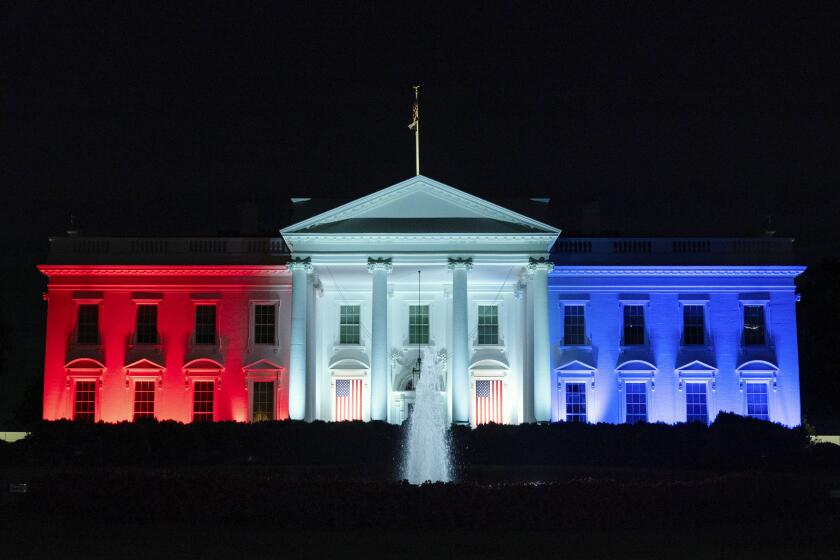Jonah Goldberg is editor in chief of the Dispatch and has been a Los Angeles Times Opinion columnist since 2005. He holds the Asness Chair in Applied Liberty at the American Enterprise Institute. He was previously senior editor at National Review, where he had worked for two decades. He is a weekly columnist for The Times, and a CNN contributor. Goldberg appears regularly on NPR’s “Morning Edition” and is the author of three New York Times bestsellers, the most recent of which is “Suicide of the West.” He lives in Washington, D.C.
Latest From This Author
There are many reasons it makes sense for the United States to obtain Greenland. But the president-elect’s embrace of a good idea often makes it less popular.
The president-elect uses the terms interchangeably, but only one of them describes a problem that actually exists. The other is just a useful conspiracy theory.
The billionaire got more of what he wanted out of the spending bill than President-elect Donald Trump did. But his role and reasoning raise a host of questions.
Presidents and their partisans often argue about who deserves credit or blame for U.S. economic performance. But much of the country’s strength transcends presidencies.
The human rights group’s report on the war with Hamas in Gaza acknowledges that prevailing interpretations of international law undermine its accusation.
As public opinion of Donald Trump, climate change and more show, the press is not as important as journalists and their detractors claim, especially now.
An ‘exhausted majority’ is more interested in a competent government, not the red vs. blue battles of elites trying to gain political power.
In theory, Trump could solidify and build on his winning coalition, but that would require disappointing the people insisting he has a mandate to do whatever he wants.
I’m a critic of the former president, but I’m also a conservative who believes the vice president is an underwhelming candidate who is wrong on a number of issues.
This election reflects the fact that Republicans and Democrats have both become minority parties relying on base voters instead of a decisive electoral majority.










